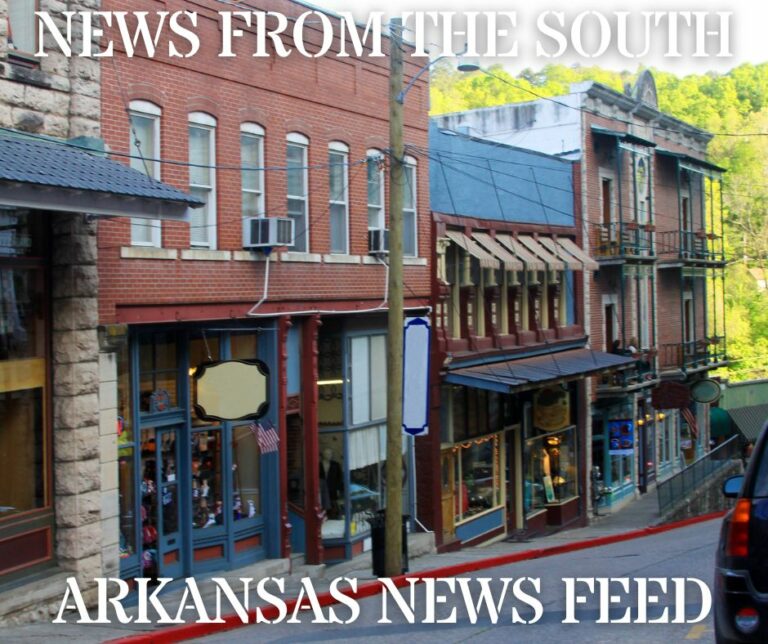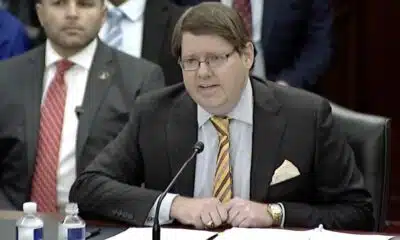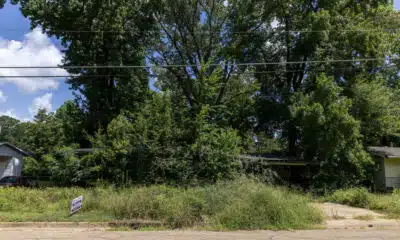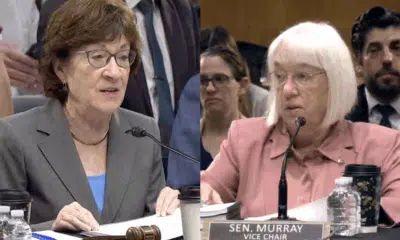News from the South - North Carolina News Feed
Asheville has North Carolina’s worst unemployment rate, state says
Six months later and still out of a job. That’s the reality for nearly 13,000 Asheville residents half a year after Tropical Storm Helene struck Western North Carolina.
In the wake of the historic storm, hundreds of businesses closed. The region’s multibillion dollar tourism sector took a devastating hit. Thousands of people were severed from their jobs. Many have not returned to the workforce.
Asheville, a city of roughly 95,000 people, typically boasts the lowest unemployment rate of North Carolina’s municipalities.
[Subscribe for FREE to Carolina Public Press’ alerts and weekend roundup newsletters]
But not now. Not after Helene.
As of January, the most recent figures available, Asheville had a 6% unemployment rate — the state’s highest — according to the N.C. Department of Commerce.
Clark Duncan, director of the Asheville Chamber of Commerce, calls the ranking a “new and unwelcome accolade.”
Help wanted in Asheville
Rocky Mount and Fayetteville, each hovering around 5% unemployment, are giving Asheville a run for its money.
The capital city of Raleigh is home to North Carolina’s lowest jobless rate at 3.2%.
And statewide, that number is a respectable 4%.
But Asheville’s high rate of unemployment doesn’t necessarily mean there aren’t jobs in the region, according to one expert.
“Buncombe County certainly does not have a jobs problem,” said Andrew Berger-Gross, a senior economist for the N.C. Department of Commerce. “What they have is an unemployment problem. We see employers hiring, but there is a large contingent of workers who have not returned to work.”
First, there is what economists call a “matching problem.” Meaning, the jobs that need to be filled do not match the skills and interests of the unemployed.
There are 20,000 job openings in the region, according to Nathan Ramsey, director of the Mountain Area Workforce Development Board. Sectors like health care and manufacturing are on track for normal hiring numbers. Plus, Helene actually created jobs in certain industries, such as construction and debris removal.
“You may be the best bartender in the world, the best server, the best cook — but does that mean you want to drive an 18-wheeler up mountain roads?,” Ramsey asked. “Does that mean you can do — or want to do — construction? Probably not.”

Second: Just because someone needs a job doesn’t mean they are ready or able to get one.
“It is safe to assume that a lot of those unemployed workers might be facing barriers to re-employment — like losing your home or losing your car,” Berger-Gross explained. “Frankly, some people might still be struggling with the emotional trauma of the hurricane’s destruction.
“A lot of these people may need help putting their lives back together before they are ready to return to the workforce.”
Though unemployment rates rose in Asheville and Buncombe County in winter months, the amount of open positions in the region is a positive sign for an economic rebound, as are increased retail sales and hotel occupancy.
But there are concerns that the state’s disaster unemployment program might not be working as it should.
“I get a lot of emails from folks who are kind of struggling with getting unemployment assistance,” state Sen. Julie Mayfield, D-Buncombe, told Carolina Public Press. “Either they’ve applied for it and they haven’t gotten it or they’ve been turned down because they’re back at work a little bit, but not full time.”
Mayfield is hopeful that tourists will arrive to watch wildflowers bloom across the Appalachians this spring.
But wildfires across Western North Carolina may jeopardize those plans.
Smoke signals
Closed trails and roads, mandatory evacuations and poor air quality have scared off springtime tourists and kept locals from their typical routines.
Adventure tourism businesses in the area aren’t operating, putting tour guides and other personnel out of work, said Brevard Mayor Maureen Copelof. Evacuation orders in her county were lifted early this week, but Brevard’s annual bike race — Assault on the Carolinas — was canceled due to the fires.
While most economic indicators in Western North Carolina have been trending positive, an additional natural disaster, such as these fires, threatens to stall recovery before the region can fully rebound.
There is an emotional impact of the wildfires as well. The din of helicopters above the mountains is a painful reminder of the panic and trauma of Helene. Plus, the downed trees and mangled forest floors from the storm make the blazes worse.
“Some people were really triggered by the fact that there was another threat to their home and their health on the six-month anniversary of Helene,” said Leah Matthews, a UNC-Asheville economics professor. “You have people thinking: ‘I’m just starting to rebuild this house and now I need to evacuate again.’”
In the wake of wildfire and flood, economic recovery in the mountains will require patience and a willingness to adapt. The community is wrestling with fundamental questions about its identity and future.
“The elephant in the room is that the region suffered a historic tragedy, and you can’t push rewind on the VCR of life,” Berger-Gross said. “You can’t go back to a time before the disaster hit — that is why it is a tragedy. All of us are trying to move to a better future for Asheville and for Western North Carolina more broadly. But will things be exactly like they were before the hurricane? No, they can’t be.”
This article first appeared on Carolina Public Press and is republished here under a Creative Commons Attribution-NoDerivatives 4.0 International License.
The post Asheville has North Carolina’s worst unemployment rate, state says appeared first on carolinapublicpress.org
News from the South - North Carolina News Feed
Two people unaccounted for in Spring Lake after flash flooding
SUMMARY: Two people are missing in Spring Lake after severe flash flooding. Heavy rain has caused significant flooding, especially near East Nash Street and Highway 581 around US64, resulting in road closures. Emergency crews from Nash County, including sheriffs, state troopers, and swiftwater rescue teams, are actively searching for the missing individuals. One officer swept away earlier was safely located. Floodwaters remain dangerously high, prompting warnings for residents to exercise caution. Reporters on scene emphasize the seriousness of the situation and the ongoing heavy rainfall, promising live updates as rescue efforts continue.
WRAL reporter Heidi Kirk was live from the scene as crews continued to search for the two missing people.
News from the South - North Carolina News Feed
Ideas for helping NC child care industry are solidifying, but a top suggestion faces headwinds
SUMMARY: North Carolina’s Child Care Task Force, led by Gov. Josh Stein, Lt. Gov. Rachel Hunt, and Sen. Jim Burgin, is addressing child care affordability, workforce pay, and financial stability, especially in rural areas. Child care providers struggle financially due to low subsidies and high costs, with infant care averaging $11,720 annually statewide. Owners like Halee Hartley and Annette Anderson-Samuels work multiple jobs to sustain their centers. The task force prioritizes raising minimum subsidy reimbursement rates to support providers equitably across counties. Discussions include establishing a child care endowment fund, leveraging philanthropy to supplement funding amid uncertain state and federal budgets.
The post Ideas for helping NC child care industry are solidifying, but a top suggestion faces headwinds appeared first on ncnewsline.com
News from the South - North Carolina News Feed
Court docs show Harris Lake boating suspect had prior legal troubles
SUMMARY: Court documents reveal Quinton Kite, charged with causing a deadly boating accident at Harris Lake that killed a 10-year-old girl and critically injured a woman, had prior legal troubles. Kite was out on a $15,000 bond from a December 2023 felony hit-and-run charge involving Alex Meyers, who was seriously injured but survived. Dashcam and security footage showed Kite’s damaged truck after leaving the crash scene. Meyers expressed frustration that earlier legal action might have prevented the tragedy. Additionally, court records from New Mexico show Kite pleaded no contest to a 2009 DUI charge, completed probation, and attended DWI school.
That includes arrests in 2009 and pending charges from a hit-and-run in 2023 that injured a Vass resident.
https://abc11.com/post/quinten-kight-court-documents-reveal-prior-legal-troubles-man-charged-harris-lake-boating-tragedy/17435804/
Download: https://abc11.com/apps/
Like us on Facebook: https://www.facebook.com/ABC11/
Instagram: https://www.instagram.com/abc11_wtvd/
Threads: https://www.threads.net/@abc11_wtvd
TIKTOK: https://www.tiktok.com/@abc11_eyewitnessnews
X: https://x.com/ABC11_WTVD
-
News from the South - Texas News Feed6 days ago
Rural Texas uses THC for health and economy
-
Mississippi Today2 days ago
After 30 years in prison, Mississippi woman dies from cancer she says was preventable
-
News from the South - Alabama News Feed6 days ago
Decision to unfreeze migrant education money comes too late for some kids
-
News from the South - Louisiana News Feed7 days ago
‘Half-baked’ USDA relocation irritates members of both parties on Senate Ag panel
-
News from the South - Georgia News Feed4 days ago
Woman charged after boy in state’s custody dies in hot car
-
Mississippi Today6 days ago
They own the house. Why won’t they cut the grass?
-
News from the South - Arkansas News Feed6 days ago
Trump’s big proposed cuts to health and education spending rebuffed by US Senate panel
-
News from the South - Georgia News Feed7 days ago
Bookman: Burt Jones’ pledge to eliminate Georgia’s income tax is wrong-headed










































